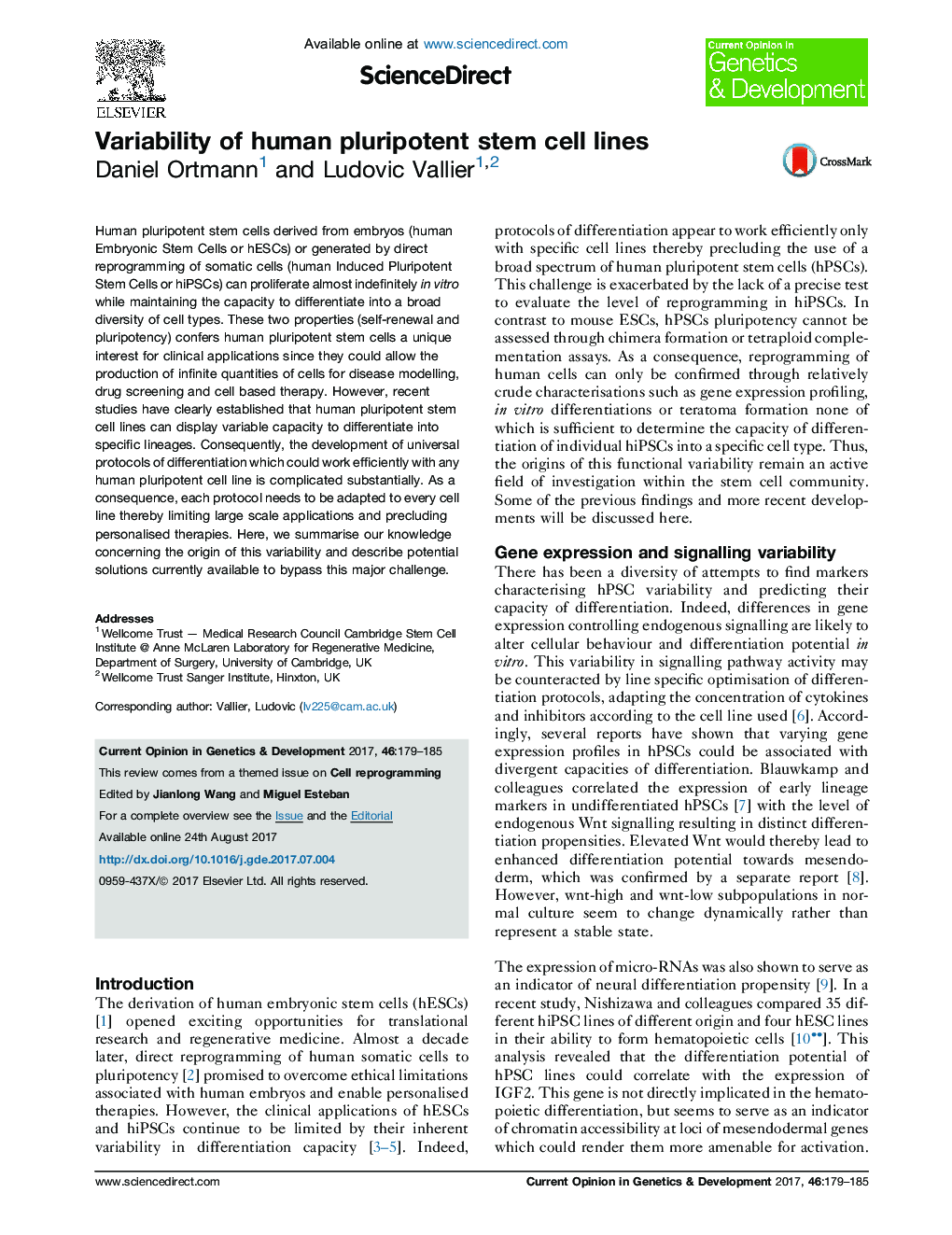| Article ID | Journal | Published Year | Pages | File Type |
|---|---|---|---|---|
| 5585707 | Current Opinion in Genetics & Development | 2017 | 7 Pages |
Abstract
Human pluripotent stem cells derived from embryos (human Embryonic Stem Cells or hESCs) or generated by direct reprogramming of somatic cells (human Induced Pluripotent Stem Cells or hiPSCs) can proliferate almost indefinitely in vitro while maintaining the capacity to differentiate into a broad diversity of cell types. These two properties (self-renewal and pluripotency) confers human pluripotent stem cells a unique interest for clinical applications since they could allow the production of infinite quantities of cells for disease modelling, drug screening and cell based therapy. However, recent studies have clearly established that human pluripotent stem cell lines can display variable capacity to differentiate into specific lineages. Consequently, the development of universal protocols of differentiation which could work efficiently with any human pluripotent cell line is complicated substantially. As a consequence, each protocol needs to be adapted to every cell line thereby limiting large scale applications and precluding personalised therapies. Here, we summarise our knowledge concerning the origin of this variability and describe potential solutions currently available to bypass this major challenge.
Related Topics
Life Sciences
Biochemistry, Genetics and Molecular Biology
Developmental Biology
Authors
Daniel Ortmann, Ludovic Vallier,
